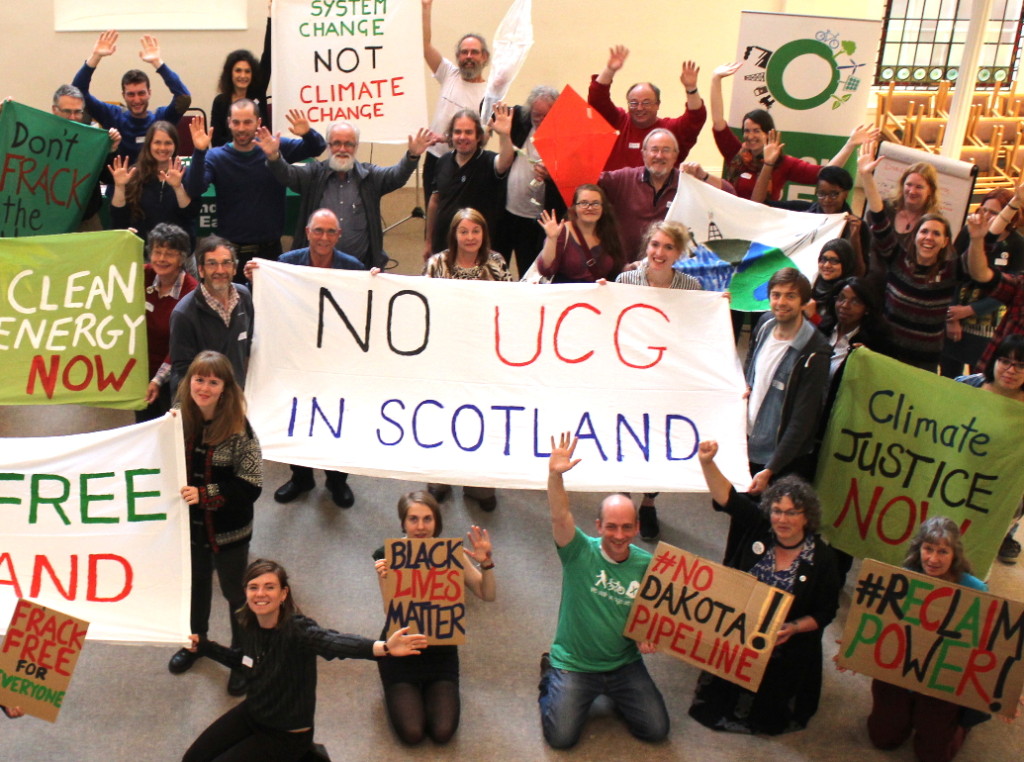
People Power bans Underground Coal Gasification
In a huge victory for people power, the Scottish Government has banned Underground Coal Gasification today. Almost a year ago to the day, the Government announced a moratorium on UCG following a groundswell of opposition to reckless proposals to set coal seams alight under the Firths of Forth and Solway. Simply the prospect of 2,000 people joining hands across the Forth Road Bridge was enough to convince the Government to act, with the moratorium announced a couple of days before the unprecedented protest.

A year on, having commissioned an independent review into the controversial fossil fuel technique, the Government has made the right choice in saying no to UCG. Not only is the history of the industry littered with serious contamination incidents, ground subsidence and industrial accidents, but the climate change consequences of UCG are simply unacceptable. The science is clear that the vast majority of fossil fuels must remain in the ground if we are to avoid the critical limit of 1.5oC warming as recognised in the Paris Agreement. So called ‘unconventional’ fossil fuels such as UCG and shale gas fracking fall outwith the 80% of known reserves that experts have branded ‘unburnable carbon’, which is why opening up a new frontier like this would be utterly disastrous.
Today’s decision on UCG is the first time the Scottish Government has said no to more fossil fuel extraction and therefore marks a hugely important turning point in our fight against climate change. However, with the North East already experiencing significant job losses as a result of low oil prices, we need to learn lessons from the loss of coal mining and other heavy industries and urgently start planning for a transition away from fossil fuels that is fair to workers and communities.
While in today’s announcement on UCG the Energy Minister Paul Wheelhouse didn’t actually use the word ‘ban’, effectively that’s what the decision amounts to. He asked the UK Government to revoke the six existing UCG licences in Scotland, not to grant any more and confirmed the Government would use planning powers to block the technology. Coal Authority licensing remains reserved to Westminster making it difficult for the Scottish Government to legislate for a ban on UCG, in the same way that reserved energy powers make it difficult to legislate for a ban on nuclear. There has been no challenge to the Scottish Government’s ongoing ‘policy ban’ on new nuclear since it was announced in 2007 despite continued Westminster support for the technology, and there’s no reason it should be any different with UCG.
We are hopeful that today’s decision spells a clear direction of travel from the Scottish Government as it prepares its new energy strategy and a new Climate Bill. Climate science demands that we move away from fossil fuels, we have abundant renewable resources to rely on, and people power will make it happen.
Mary Church is Head of Campaigns at Friends of the Earth Scotland. Follow her on Twitter
We’re only able to keep campaigning on vital issues like these thanks to the support of our members. Please consider joining us or making a small donation. Thank you – your support makes a real difference. http://www.foe-scotland.org.uk/join-us-today
